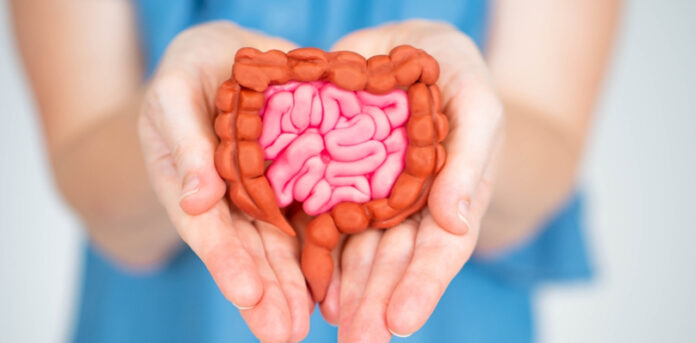Gut health has gained increasing recognition in recent years due to its impact on overall well-being. It is referred to as a “second brain,” because it plays a key role in digestion and nutrient absorption. Moreover, it affects our mood and immune system. When your gut is in good condition, you tend to experience better physical and mental fitness. However, poor gut health can lead to a range of issues.
5 Signs That May Indicate You have poor gut health

Let’s explore five signs that may indicate you have poor gut health:
Persistent Digestive Problems
One of the most prominent symptoms of poor gut health is constant digestive problems. If you repeatedly undergo issues such as bloating, gas, diarrhea, constipation, or indigestion, it could be a straightforward indicator of an unhealthy gut. A balanced gut microbiome is critical for efficient digestion, and imbalance can disturb this function, leading to pain and digestive distress.
Unexplained Weight Changes
Sudden weight changes, whether it’s weight gain or difficulty losing weight, may be related to inadequate gut health. Furthermore, an unhealthy gut can affect your cravings and appetite, making it harder to maintain a healthy weight.
Chronic Fatigue And Low Energy
Always feeling exhausted and low on energy, even after a good sleep, can be an indication of poor gut health. The gut plays a critical role in nutrient absorption, and an imbalanced microbiome can lead to nutrient deficiencies, making you feel lethargic and fatigued.
Skin Issues
Your skin’s agility is related to your gut. Conditions such as acne, eczema, or psoriasis may be worsened or activated by an unhealthy gut. Inflammation in the gut can lead to systemic inflammation throughout the body, which can manifest on your skin as various skin problems.
Frequent Illness and Weakened Immunity
A large portion of your immune system is linked to your gut. When your gut health is compromised, it can deplete your immune system. This makes you more sensitive to illnesses. If you find yourself falling sick frequently or taking longer to recover from illnesses, it might be a sign that your gut is working to maintain its balance.
5 Ways To Improve Your Gut Health
Enhancing your gut health is a proactive step toward better overall well-being. By adopting a diet rich in diverse, nutritious foods, incorporating probiotics and prebiotics, and being mindful of antibiotic use, you can support a thriving gut microbiome. Here are the ways with the help of which you can manage your gut health:
Eat A Wide Range Of Foods
A diverse diet is one of the keys to a healthy gut. A variety of foods stimulate the growth of different beneficial bacteria in your gut. Include a wide variety of fruits, vegetables, whole grains, lean proteins, and healthy fats in your diet. Fiber-rich foods, including leafy greens, legumes, and whole grains, are best to nurture good gut bacteria. By modifying your food choices, you feed your microbiome with the nutrients it needs to thrive.
Eat Fermented Foods
Fermented foods are packed with probiotics that are live bacteria and yeasts and are beneficial for your gut. Consume foods like yogurt, kefir, sauerkraut, kimchi, and kombucha in your diet. Such probiotic-rich foods can help refill and keep a healthy balance of gut bacteria.
Take Prebiotics
Prebiotics are non-digestible fibers that are beneficial for bacteria in your gut. Foods such as garlic, onions, leeks, asparagus, and bananas are perfect sources of prebiotics. By including these in your diet, you can help keep the growth and activity of good bacteria, eventually enhancing your gut health.
Avoid Overuse Of Antibiotics
While antibiotics are valuable for dealing with infections, overuse can damage your gut microbiome. Antibiotics don’t distinguish between dangerous and beneficial bacteria, so they can disrupt the fragile balance in your gut. Whenever antibiotics are prescribed, make sure to take the full course as supervised by your healthcare provider.
Manage Stress And Get Adequate Sleep
Stress and sleep habits can greatly affect your overall health. High levels of stress can disturb the balance of gut bacteria and lead to inflammation. Find stress-reduction techniques that work for you. Further, aim for 7-9 hours of quality sleep each night, as insufficient sleep can also badly affect your gut microbiome.
FAQs
Why is gut health important?
A healthy gut is essential for efficient digestion, the absorption of nutrients, and maintaining a strong immune system. An imbalanced gut microbiome can lead to various health issues, including digestive problems, weakened immunity, and even mood disorders.
Are fermented foods necessary for a healthy gut?
While not mandatory, fermented foods like sauerkraut, kimchi, and kombucha are excellent sources of probiotics that can help maintain a balanced gut microbiome. Incorporating them into your diet can be beneficial for gut health.
Can stress affect my gut health?
Yes, chronic stress can negatively impact gut health. High-stress levels can disrupt the balance of gut bacteria and contribute to digestive issues, inflammation, and weakened immunity.

